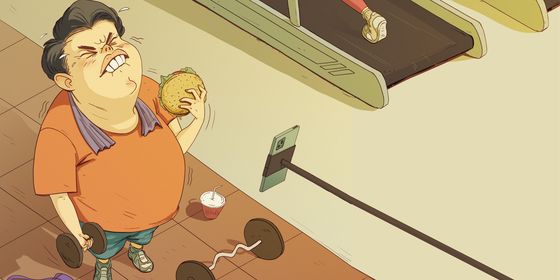Linguistic advice for when you’re broke and need a loan
Your true friends will be there through thick and thin, good and bad—unless you need money. Oh, yes, your friends will be there when you want to talk about your colorectal surgery or Big Bang Theory fan fiction, but the moment you need a loan, you’ll find them staring at their shoes and kicking the dirt. Nothing kills a good friendship like loaning or borrowing cash, but, sometimes you have no other choice. Here are some tips on asking for a handout in Chinese without killing your friendships.
The first thing that one should keep in mind is that you should probably not use the word “money.” People prefer to describe their difficulty in a more euphemistic manner; for that there is 手头紧 (shǒutóu jǐn), which roughly means “tight fists.” If you don’t want to give a specific description about what happened to you, you can go with this all-purpose term:
It’s hard to explain, but recently my fists are a little tight. So, I have to come to you for help.
Zhēn bù hǎoyìsi kāikǒu, dànshì wǒ zuìjìn shǒutóu yǒudiǎn er jǐn, zhǐhǎo zhǎo nǐ bāngmáng.
真不好意思开口,但是我最近手头有点儿紧,只好找你帮忙。
There you go. Now no one needs to know that you gambled all your money away or that you spent it on that nice Nigerian prince you met online. It’s hard to explain, so cough up. They may ask:
Well, how much do you need?
Nǐ xūyào duōshǎo qián?
你需要多少钱?
Say the number and add “你方便吗 (Nǐ fāngbiàn ma)?” This “Are you convenient?” has at least two meanings: “Do you have enough money at hand?” and “Are you willing to lend it to me?” Regardless, it looks like a yes-or-no question.
A: I need 5,000 RMB. Is that convenient?
Wǒ xūyào wǔqiān kuài qián. Nǐ fāngbiàn ma?
我需要五千块钱。你方便吗?
B: I just have 3,000 at hand.
Wǒ xiànzài shǒutóu zhǐyǒu sānqiān.
我现在手头只有三千。
A: That will also help. Could you lend it to me now?
Nà yě xíng. Néng xiān jiè gěi wǒ ma?
那也行。能先借给我吗?
Nobody likes lending money, so if they hesitate, it’s human nature; some people would more happily part with a limb than their beloved, precious money. You need to win their trust. For example, you could make a promise about the return date and explain how the interest will be paid. Heck, write them a receipt if it makes them feel better.
A: I will return your money in three months with interest. I am writing a receipt.
Sān gè yuè zhīhòu, lián běn dài lì hái gěi nǐ, wǒ zhè jiù xiě jiètiáo.
三个月之后,连本带利还给你,我这就写借条。
B: You don’t need to do that.
Bùyòng zhème máfan.
不用这么麻烦。
A: I insist. It’s said that, ‘Financial matters should be settled clearly even between brothers.
Háishì yào de. Qīn xiōngdì míng suànzhàng ma.
还是要的。亲兄弟明算账嘛。
Lending to a friend who’s genuinely in need can be like delivering coal on a cold, snowy day, or 雪中送炭 (xuě zhōng sòng tàn). As a general rule, 救急不救穷 (jiù jí bù jiù qióng), that is, you lend financial aid to those in an emergency, but not those who are perennially in need of money. If you find yourself in the position of the lender facing a not-so-urgent situation, you won’t want to say “no.” You’ll tap-dance around it, but you don’t want to look like a jerk. For this tactic, some pretexts are necessary.
If it’s not obvious, you need to plead poverty. To end the conversation quickly, the best method is to make it clear that you have no money. Based on this principle, the only thing you need to do is to give some believable whereabouts for your cash.
I’d like to, but all my money is tied up in stocks.
Wǒ yě xiǎng jiè gěi nǐ, dàn shǒu shàng de qián dōu bèi gǔpiào tàoláole.
我也想借给你,但手上的钱都被股票套牢了。
Or, the “Double 11” shopping circus can be blamed.
If only you’d come to me a week earlier! I spent my paycheck during Double 11.
Nǐ yàoshi shàng gè xīngqí lái zhǎo wǒ jiù hǎole! Wǒ shuāng shíyī bǎ gōngzī dōu huāle.
你要是上个星期来找我就好了!我双十一把工资都花了。
The second strategy is finding a scapegoat, claiming that you are not the one who controls the purse strings. Just transfer the responsibility to your parents or spouse and say that you have no say in financial matters.
My wife manages the money in our family and I am afraid she won’t agree.
Wǒmen jiā shì wǒ lǎopó guǎn qián, kǒngpà tā bù huì tóngyì.
我们家是我老婆管钱,恐怕她不会同意。
The most effective way to avoid lenders is to live a low-key life and show them you don’t have much to offer. Nip any attempt to borrow money in the bud. Folk wisdom tells us: if you are poor, no one bothers visiting even if you live downtown, but if you are wealthy, distant relatives come to your door even if you live deep inside a mountain. (贫居闹市无人问,富在深山有远亲。Pín jū nàoshì wú rén wèn, fù zài shēnshān yǒu yuǎnqīn.)
If you are faced with a true friend that you really care for, be as generous as you like, but remember that no matter how good of a friend they are, they may be a horrible debtor. When the deadline is due and they don’t have your money or a reasonable explanation, things can get very ugly. As we say in Chinese, 欠债还钱,天经地义。(Qiàn zhài hái qián, tiānjīngdìyì. Paying back debts is a mandate of heaven.) Still, be gentle.
A: I have a vague recollection that I lent you some money. Is that right?
Wǒ yǐnyuē jìdé hǎoxiàng jièguò qián gěi nǐ. Yǒu zhè huí shì ma?
我隐约记得好像借过钱给你。有这回事吗?
B: Yes, you did. I will return the money tomorrow.
Shì de, wǒ míngtiān hái nǐ.
是的,我明天还你。
A: No rush. I was just asking.
Bù zháo jí, wǒ jiùshì wèn yīxià.
不着急,我就是问一下。
A perhaps more Machiavellian approach would be to ask after their well-being.
A: The other day you said you were kind of hard up. Is everything OK now? Do you need some more loans?
Nèitiān nǐ shuō shǒutóu yǒudiǎn er jǐn. Xiànzài zěnme yàngle? Xū bù xūyào zài jiè nǐ diǎn er qián?
那天你说手头有点儿紧。现在怎么样了?需不需要再借你点儿钱?
B: The problem is solved, all thanks to your help. I will return the money soon.
Wèntí yǐjīng jiějuéle, duōkuī nǐ bāngmáng. Wǒ huì jǐnkuài hái qián.
问题已经解决了,多亏你帮忙。我会尽快还钱。
This is a very risky strategy, however, because they may actually need to borrow more and you’ve just painted yourself into a corner. So feel free to make up your own excuse.
A: I am sorry to ask, but there’s an emergency. Can you give me that money I lent you last time?
Bù hǎoyìsi, wǒ yǒu jǐnjí qíngkuàng. Nǐ néng bǎ shàng cì de qián hái gěi wǒ ma?
不好意思,我有紧急情况。你能把上次的钱还给我吗?
Whether you’re the lender or borrower, it’s always good to pay your debts on time. Remember: 好借好还,再借不难 (Hǎo jiè hào huán, zài jiè bù nán. Return what you borrow on time, you’ll be welcome to borrow next time).
Can You Share Some Change? is a story from our issue, “Wildest Fantasy.” To read the entire issue, become a subscriber and receive the full magazine. Alternatively, you can purchase the digital version from the App Store.














